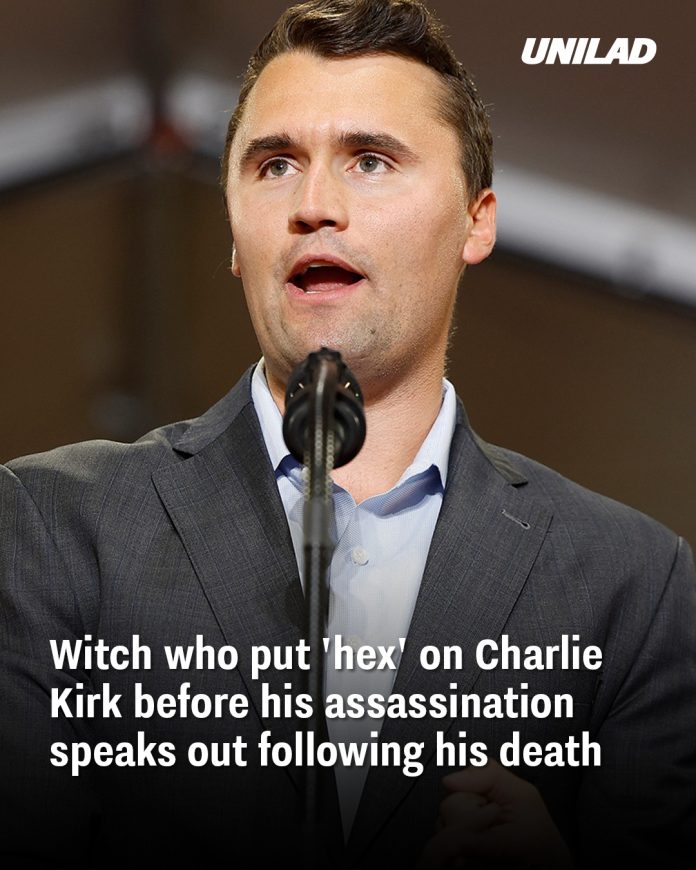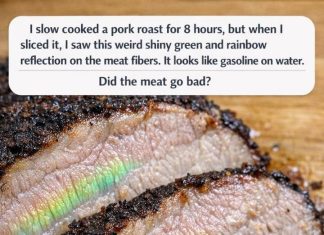On September 10, 2025, right-wing commentator Charlie Kirk was speaking at Utah Valley University when a single bullet struck him in the neck. He was taken to hospital but was declared dead soon afterwards at the age of 31. The incident sent shockwaves across the U.S. and around the world. Authorities later named their leading suspect as 22-year-old Tyler Robinson, a native of Utah, who remains in custody.
Article About Etsy Witches and a “Hex”
Just days before Kirk’s assassination, an article was published by a magazine that described how its writer paid some witches via the online marketplace Etsy to cast spells on Kirk. Among the spells mentioned were a “MAKE EVERYONE HATE HIM” curse and what was called a “POWERFUL HEX SPELL.” The writer also received a video showing a photograph of Kirk being burned.

The Witch Speaks Out
One of the individuals involved, known as Priestess Lilin, has since spoken publicly. She runs an Etsy account called StrixSisters alongside another practitioner named Leamashtu. While Lilin claims she works with “beneficial magic,” often called white magic—which is used for healing, love, abundance, and divination—Leamashtu is said to practice malefic or black magic, involving curses, obsession spells, and pact-making. Lilin acknowledged that magic is “very much real” to her community, and that spells, curses, and other forms of magic are believed to carry effects, whether psychological or metaphysical. However, she firmly denied any responsibility for Kirk’s death.
Intentions Claimed in Original Article
The writer of the article insisted that no physical harm was desired. The disturbing wishes outlined in the piece were mostly annoyances: waking up with a zit, microphone malfunctions, clothing that fits poorly, socks always slipping, and even a thumb too large to tweet. The author concluded with the question: “So, did my Etsy curses work? Time will tell.”
Aftermath and Response
Following the shooting, the publication added a prominently placed editor’s note condemning the act of violence in the “strongest possible terms.” The note clarified that it does not support or encourage political violence under any circumstances. Shortly afterward, the article was removed. The magazine cited legal advice and concerns for staff safety as reasons, saying the decision came out of “an abundance of caution” rather than a change in editorial judgement.
Broader Reactions and Context
Josh Jackson, president of the media group that owns the magazine, described the article as “tongue-in-cheek,” intended as a satirical reaction to Kirk’s public statements over the years. Jackson emphasized that the author made it clear no real harm was sought. Many observers on social media, however, expressed shock and horror at the timing and content, especially in light of the tragic events. Priestess Lilin, meanwhile, stated that while magic is real to her, spellcasting is not necessarily tied to direct outcomes, especially not something as grave as death. She urged recognition that the life and death of any person carry weight, and reiterated that she does not celebrate loss of life.
Conclusion
The tragic death of Charlie Kirk has sparked widespread discussion about free speech, satire, and the limits of symbolic actions like curses. While the original article and the witches involved insist that their intentions were not violent, the timing of events has fueled debate over whether such symbolic acts can unintentionally escalate tensions. This incident highlights the need for careful consideration of how words, art, and rituals may be interpreted in a highly polarized climate. In the end, the focus has shifted to broader conversations about accountability, political discourse, and the boundaries between expression and harm.

Conclusion
The tragic death of Charlie Kirk has sparked widespread discussion about free speech, satire, and the limits of symbolic actions like curses. While the original article and the witches involved insist that their intentions were not violent, the timing of events has fueled debate over whether such symbolic acts can unintentionally escalate tensions. This incident highlights the need for careful consideration of how words, art, and rituals may be interpreted in a highly polarized climate. In the end, the focus has shifted to broader conversations about accountability, political discourse, and the boundaries between expression and harm.

















